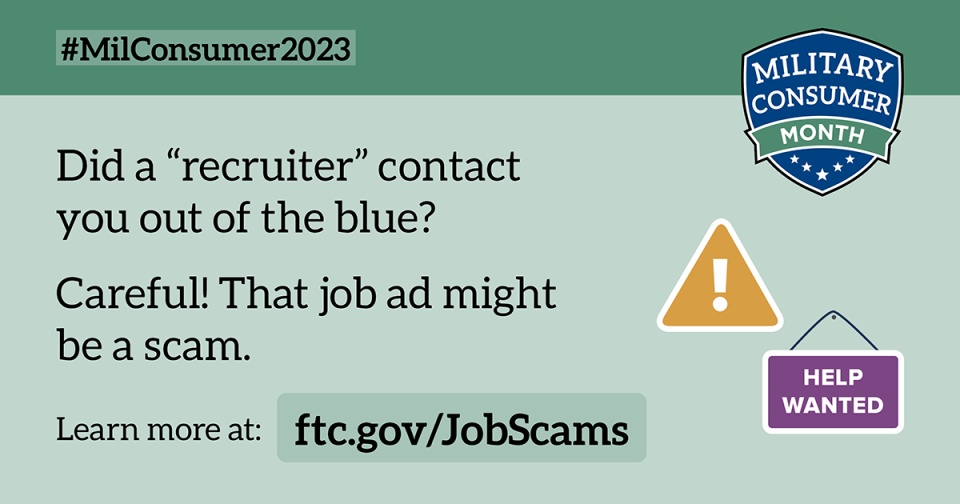Military spouses don’t always have the luxury of staying in the same job for years. Explaining gaps in your employment history and frequent relocation is hard enough — and scammers only make it worse. Spot job scams before you apply. Read on to learn how.
Scammers use many tactics to try to steal your money or your personal information while you’re on the hunt for a job. Know how job scams work — and what to look for:
- Hijacked job ads: “Recruiters” use sites like Indeed and LinkedIn to message you out of the blue. They might send you to a fake website to “apply” for jobs or schedule phony virtual interviews where they ask you for personal information. But hold on, did you check to see if that job posting was real? Don’t rely on a recruiter’s message. Find the active job posting on the company’s actual website — look for a “career opportunities” or “jobs” page — and apply directly through the company’s encrypted site.
- Fake check schemes: An “employer” might send you a check to cover upfront costs like equipment or supplies and tell you to send part of the money back. That’s a fake check scam. It might take weeks for the bad check to bounce — by then the “employer” is gone — and you’ll be stuck paying the money back to the bank. Never deposit a check from someone you don’t know.
Before you apply, search the company or potential employer’s name online with the word “scam” or “fraud.” If you find stories of others who’ve lost money, walk away. Talking about a job posting with someone you trust — like a career counselor on your local military base or online through Military OneSource — might help you realize it’s a scam. If you spot a job scam, tell the FTC: ReportFraud.ftc.gov.

